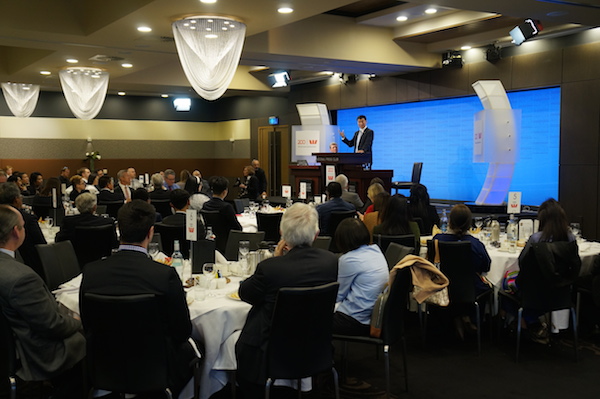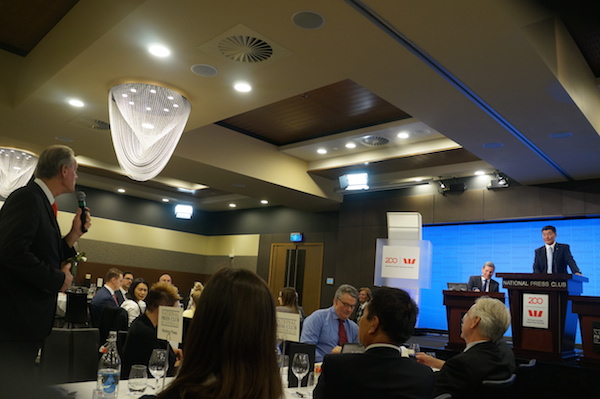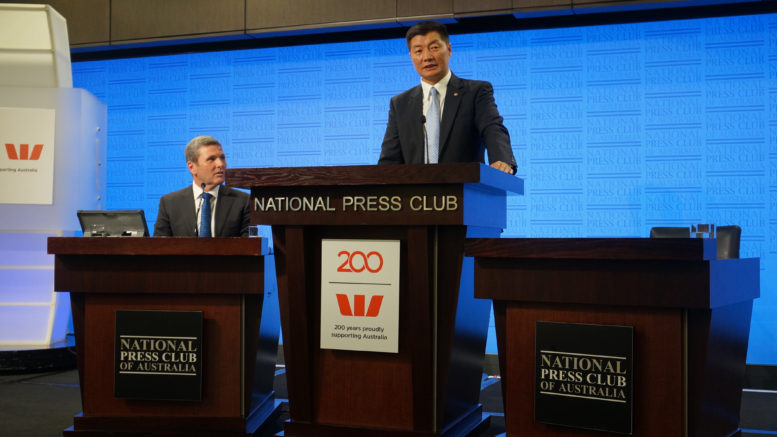CANBERRA: President Dr Lobsang Sangay of the Central Tibetan Administration was at the National Press Club of Australia based in Canberra on Tuesday, 8 August, to speak on the topic ‘‘Tibet and Australia: How Can Democracies Survive a Rising China’.
Eminent journalists and editors from leading Australian dailies and media houses attended the talk. Chris Uhlmann, a writer and a veteran Australian journalist known for his acerbic political observations, moderated the talk.
President Dr Lobsang Sangay, in his talk, spoke about how China occupied Tibet using tactics of carrot and stick to win the over the native population, and what Australia and the world can learn about China from it.
“To understand China, you have to understand the Tibet narrative. Without understanding the Tibet issue, you can never figure out China and their ideology,” Dr Sangay began.
“China came into Tibet with the promise of peace and prosperity. They built roads, bridges, and airports in the name of development. They even co-opted a few religious leaders and aristocratic families to influence the Tibetan public. But even after all this, China has not been able to win the Tibetan people’s loyalty,” he said.
“More than a million Tibetans died in Tibet as a result of China’s unjust policies. Some died as a direct result of military occupation, some died in famines caused China’s illogical economic policies, some died in labor camps, etc.,” he added.
“98% of Tibetan monasteries and nunneries were destroyed and 99% of monks and nuns were forcibly disrobed during the occupation. From the very beginning, Chinese government’s objective was to transform Tibet into China and Tibetans into Chinese. They wanted to eradicate the very foundation of Tibetan culture and civilization,” he said.
“What’s terrifying now is that we are seeing this Chinese tactic of power and intimidation unfold all over the world today, albeit under different trade and development initiatives,” he pointed out.
“China is one of Australia’s most important trading partners, making a strong relationship vital to Australia’s national interest. But there are growing concerns about covert Chinese actions taking place on Australian soil. Every government has an interest in promoting itself abroad to extend its soft power. However, their intimidation tactics to increase control and silence dissent is a threat to the democratic principles that Australia stands for,” he said.
“Therefore, as a Tibetan, I have to tell you what happened to Tibet in the early 1950s. However, it could be you tomorrow. What happened to us could easily happen to you. Given the discourse around the world, people are worried about China’s intentions. And rightly so,” he declared.
Chris Ulhman, in his introductory remarks, lauded China’s rapid economic rise in the last thirty years particularly its marvellous achievement of lifting millions of people out of poverty. However, he said true greatness of a nation is measured in how it treats its people rather than economic or military might.
“So we should not forget Tibet and the lessons that it gives us in our dealings with China,” he said.
This was Dr Sangay’s second visit to the National Press Club of Australia. His last visit to the club was in June 2012. At that time, he spoke about Tibetan democracy, the current situation in Tibet and the choices Australia must make in its relationship with China.

President Dr Sangay speaking at the National Press Club.

A member of the audience asking a question to President Dr Sangay.

